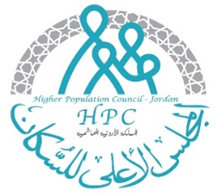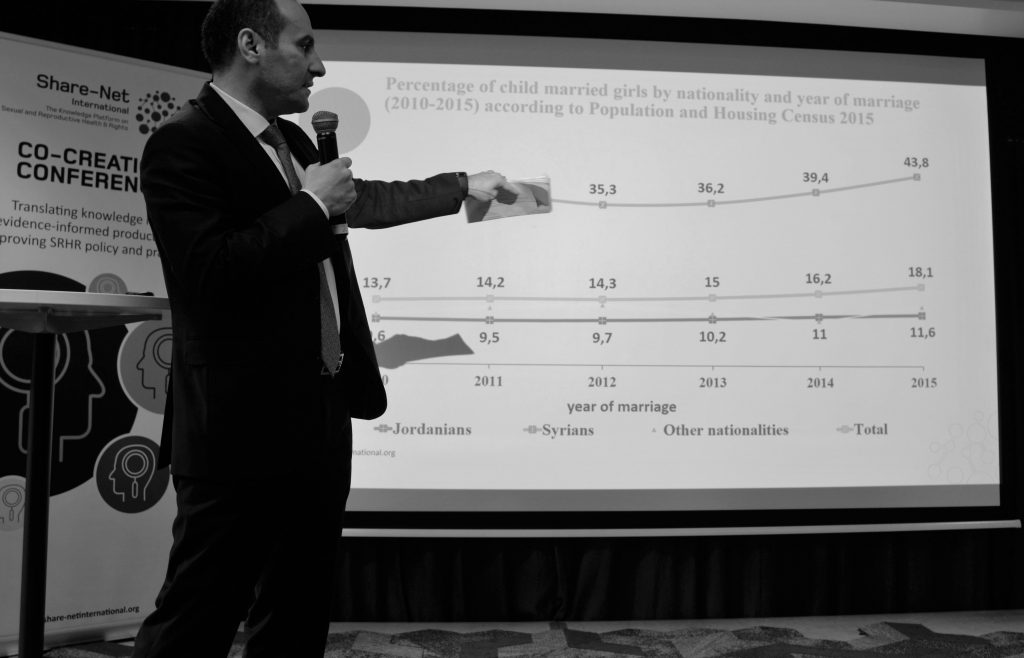Know-how of early marriage prevention (knowledge & practice)
About the project
Dr. Aqel explained that the Institute for Family Health provides psychological health support, health and rehabilitation services, carries out fieldwork and provides training and skills development.
The grant received from Share-Net International (SNI) aimed to disseminate the model used by the King Hussein Foundation to reduce early marriage and present the model to decision-makers and civil society organizations to be adopted and built upon. One of the key deliverables of the project was a video and documented success stories about the model. Aqel noted that the target audience of the knowledge products were civil society organizations and ministries that are concerned with early marriage prevention, in addition to international non-profit organizations.
The team asked Aqel about the extent to which the project aimed to influence SRH programs, policies and practices and what the desired changes were. Aqel responded that the Institute for Family Health has a section concerned with youth and SRH practices, and has established youth and women-friendly centers that serve as safe havens and provide SRH services while ensuring privacy and confidentiality. Aqel added that the project aims to change perceptions and raise awareness of the importance of making SRH accessible to society.
Aqel noted that the SNI small grants offer the opportunity to disseminate knowledge more effectively through SNI platforms. “While the planning and implementation of small grant projects require around the same amount of time as large grant projects, small grants are essential as they help to fill the gaps in large projects and ensure the achievement of high-quality deliverables,” Aqel explained. Aqel said that one of the challenges they faced while working on the small grant project was the lack of allocations for project staff, which increased the workload on IFH core staff.
When asked about whether the SNI small grants offer the opportunity to learn from SRH policymakers and other practitioners and researchers in the field, Aqel stressed that the SNI small grants are beneficial as they enabled him to attend regular meetings, in his capacity as a member, and discuss the latest research.
In answering a question about whether SNI’s small grants allowed him to expand his network of SRH policymakers, practitioners and researchers and build new partnerships, Aqel noted that the networks and blogs that have been established as well as the regularly held meetings provide the opportunity for dialogue with policymakers.
Noting that the application process is easy and not complicated, Aqel advised other Share-Net members to apply for small grants as they help to bridge the gap in large projects by disseminating knowledge and successful experiences.
With special thanks to Dr. Ibraheem Aqel



